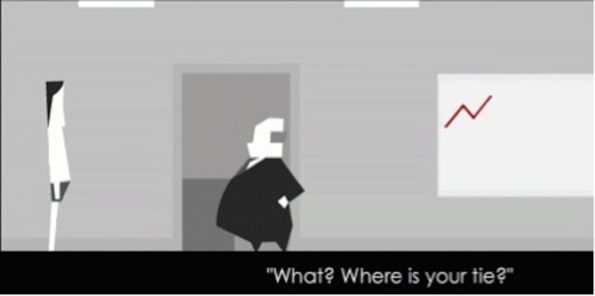Search
To search for an exact match, type the word or phrase you want in quotation marks.
A*DESK has been offering since 2002 contents about criticism and contemporary art. A*DESK has become consolidated thanks to all those who have believed in the project, all those who have followed us, debating, participating and collaborating. Many people have collaborated with A*DESK, and continue to do so. Their efforts, knowledge and belief in the project are what make it grow internationally. At A*DESK we have also generated work for over one hundred professionals in culture, from small collaborations with reviews and classes, to more prolonged and intense collaborations.
At A*DESK we believe in the need for free and universal access to culture and knowledge. We want to carry on being independent, remaining open to more ideas and opinions. If you believe in A*DESK, we need your backing to be able to continue. You can now participate in the project by supporting it. You can choose how much you want to contribute to the project.
You can decide how much you want to bring to the project.

Well, well, what a turn up for the books, eh? When I was little they wouldn’t let me have a video-console. According to my parents they said it didn’t just kill ‘little Martians’ (what Martians?) but also a child’s creativity, leaving nothing but a soulless halfwit. They wanted me to go out on the street and have a healthy life, to play at whatever kids play in the park, to scrape our knees, lift the odd skirt and eat peanuts on a bench. Far, far, away from “those little machines” that as everyone knows bode nothing good.
But it wasn’t just them who thought it. According to what they indicated on television, videogames could even end up killing people. Images of a doorway, the reporter talking very seriously to the camera while underneath a subtitle says, ‘The youth killed his whole family with a Katana. He was very keen on playing with his video-console’. The odd image from Final Fantasy and voila, that’s it, it is all the fault of those damned japs and their killing games. These devices will brainwash you, watch out. No doubt my family never thought of such a dramatic end but yes in the possibility that I would end up shut up in my bedroom without even having been punished. Maybe they were right.
But then MoMA comes along and incorporates 14 videogames into their collection. And not happy with that, they announce they will incorporate more. So hey, time to wipe the slate clean and begin again. My house is full of books about culture and videogames, digital anthropologies on the holodeck with covers in which Link, Mario or Sonic offere a fair pile of philosophy. I discover that my father has downloaded Angry Birds on his mobile phone and that television now looks favourably on what is today already the first leisure, entertainment industry in Spain. As is well known, if they have money they aren’t Africans but Arabs. Experts appear, and universities hurry to offer classes about this new type of contemporary culture. Funny how things turn out, eh?
Moving swiftly along to the second course. We accept without any further preambles that the videogame is a particular form of communication, a powerful medium of representation that is by no means neutral or inoffensive (obviously), of very specific social and symbolic constructions. Frontline instruments of cultural transmission that today educate more children in the first world than any other industry and many schools.
If we look at it in more serious terms, in 2011 Apple withdrew from its AppStore an application without offering any form of explanation. Not so long ago it also withdrew Defend the Diaoyu Islands (where Chinese and Japanese fought virtually, over what was also being fought over via diplomacy and by the armed forces, in their territorial waters) because it violated in a very evident manner their terms of service, which stipulate that a game cannot have enemies that pertain to any real life race, culture, government or corporation..
Enemies. The problem is that in 2011 there weren’t any. It was a narrated/playable story with a subject that didn’t break (violate) any sacred accord signed under the “I accept the terms and leave me in peace”. In Phone Story you didn’t kill anybody, you didn’t save the world or strike down boats nor flying saucers. But the little game did show the large telecommunication companies in a very bad light and on their very own distribution platform. Touché!
Phone Story began in Africa where the player put pressure on the miners, in conditions of semi-slavery, in order to rapidly extract coltan, the material out of which smartphones are made. Before reaching our pockets they travel to Shenzhen where the sadly infamous Foxconn assembles the pieces, where the player had to hurry to prevent the workers from committing suicide by throwing themselves off the roof. And the game continued but Apple’s patience didn’t. So they withdrew it. And the Streisand effect helped the Italians ofMolleindustria to make their inspired and by no means subtle serious games become known.
Luckily there’s a way round everything. So just as when I was little I went to friends’ houses to get the money’s worth out of their games, Internet offers what others prohibit. The problem is that it seems like I’m a child again, with that same feeling as when they wouldn’t let me have a video-console. Though now it’s others who want me to go out on the street and live healthily-with Runkeeper- to play at whatever humans do in the metro (read tweets), scrape our knees (while plugging in the charger) lift the odd skirt (taking a photograph and uploading it onto Instagram) or eat tapas in a bar (while checking it out on Foursquare).


If he were rich he would be a philanthropist. Or that’s what he says. We’re not so sure. He says that as nobody has given him the opportunity yet he dedicates himself, while he can, to celebrating mediocrity and anonymity. During the day he types away and takes advantage of the peace at night to construct a shelter, just in case the apocalypse finally arrives.
"A desk is a dangerous place from which to watch the world" (John Le Carré)